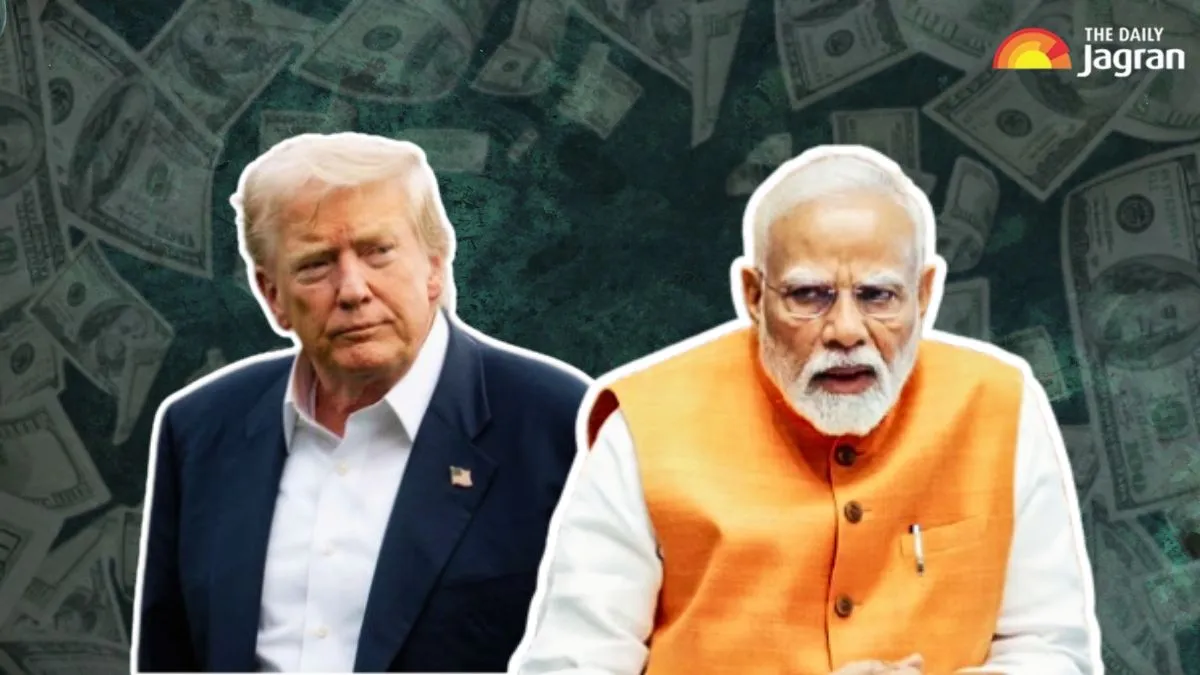- By Supratik Das
- Fri, 05 Sep 2025 08:59 AM (IST)
- Source:JND
Trump semiconductor tariffs: US President Donald Trump on Thursday stated that White House would be placing tariffs on semiconductor imports from firms that are not relocating production to the US."Yeah, I have talked to the people here. Chips and semiconductors - we will be imposing tariffs on the companies that aren't coming in. We will be imposing a tariff very shortly," Trump said without providing an exact time or rate. "We will be putting a very substantial tariff, not that high, but fairly substantial tariff with the understanding that if they come into the country, if they are coming in, building, planning to come in, there will not be a tariff," Trump saidwhile speaking to reporters before meeting with CEOs of top tech companies.
Will This Impact Indian Industries?
Trump's latest tariff jibe comes on the heels of the president saying he will seek a swift ruling from the Supreme Court as his administration pushes to overturn a court decision that found many of his tariffs illegal. The appellate court however only considered the legality of his most sweeping tariffs and not sector-specific levies such as those on steel and, potentially, semiconductors, which are viewed as on firmer legal footing. But Trump’s proposed semiconductor tariffs, aimed at companies not manufacturing within the United States, are expected to create both short-term challenges and long-term opportunities for India’s semiconductor ecosystem. While certain industries in India may face immediate disruptions, the evolving global supply chain could eventually place India in a stronger strategic position as a major chip manufacturing hub.
The Indian auto industry, particularly the rapidly expanding electric vehicle (EV) sector, is expected to be impacted first in case tariffs constrict global supplies of chips. Car manufacturers already back on their feet after the pandemic-era shortage might again have to contend with delays in procuring essential semiconductors, resulting in production bottlenecks. Another shortage could drive input costs up, pushing the prices of cars and EVs higher for Indian consumers at a time when the government is being bullish on mass adoption of clean mobility. The bigger geopolitical battle between Washington and Beijing is likely to spill over into India's semiconductor plans. As the US tightens the export of chip technology to China and China retaliating with a cap on the supply of rare earth elements needed to make chips, Indian companies could encounter difficulties in procuring components. Any interference in global chip supply chains would immediately affect India's plans, as the nation continues to rely on imports for over 90 per cent of its chip needs.
Currently, exemptions under US tariff policies shield phones such as iPhones put together in India for the US market. These, though, are temporary. If they are revoked, Indian-made electronics may become cost-ineffective compared with competing hubs like Vietnam and China. This would not only slow the export momentum of India but also add pressure on domestic manufacturers to vie for market share globally.
India's Semiconductor Push Gathering Momentum
Irrespective of restrains, India's long-term projection in the semiconductor sector is optimistic. Prime Minister Narendra Modi, during his Independence Day speech from the Red Fort, stated that India's first semiconductor chip would be coming into the market by the end of this year, terming it a "historic step" for India's technological progress. Modi reported that six factories are already functional whereas four new plants have been cleared by the Union Cabinet recently. Semiconductor projects totaling Rs 4,594 crore have also been approved by the Cabinet, including a 3D glass packaging facility backed by Intel and Lockheed Martin, a silicon carbide fabrication facility in Bhubaneswar, a chip packaging facility of high capacity in Andhra Pradesh, and a new facility in Punjab. These initiatives are part of the larger India Semiconductor Mission, which has garnered cumulative commitment investments of over Rs 1.6 lakh crore.
With these initiatives, India's now in the top 10 semiconductor countries, along with leaders like Taiwan, the US, South Korea, China, Japan, and Germany. According to official reports cited by Reuters India's USD 38 billion semiconductor market in 2023 and expected to reach USD 45–50 billion in 2024–25 ranks and is likely to reach USD 100–110 billion by 2030. India is also benefiting from the global "China + 1" concept where multinational companies are looking to de-risk supply chains from over reliance on China. Companies like Micron Technology have already invested amounting to billions of dollars for chip testing and packaging facilities in India.
ALSO READ: Cabinet Approves Semiconductor Projects Worth Rs 4,594 Crore In Odisha, Punjab And Andhra Pradesh
In the immediate term, Trump's proposed tariffs could negatively impact critical sectors of India's economy e.g., automobiles and electronics; and create uncertainty in the global semiconductor supply chain as well. However, if India can leverage its domestic policy support, attract diverted investment and provide scale to domestic supply it could position itself as the third major hub in the global semiconductor ecosystem alongside the US and Taiwan in the coming decade.

